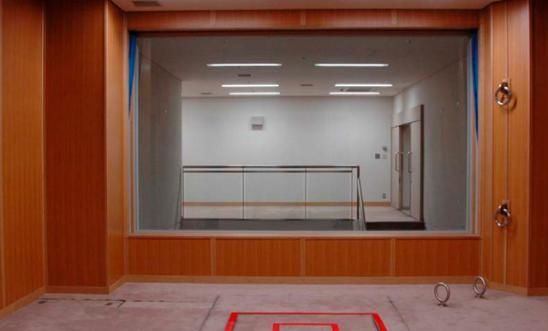
Press releases
Japan carries out first execution of year

‘To take a man’s life in this way is the politics of the gutter’ - Hiroka Shoji
Amnesty International has condemned the Japanese authorities for carrying out the country’s first execution of the year, after 44-year-old Tsukasa Kanda was hanged early this morning at Nagoya detention centre.
Tsukasa Kanda, who was convicted of robbery and homicide in 2009, has become the 12th person executed under the current government since it took office in 2012. Three people were also executed last year - with Japan being one of only 22 countries to carry out executions in 2014 - and 129 people currently languish on death row in the country.
Tsukasa Kanda’s execution took place when Japan’s political and media attention has largely been focused on the government’s controversial plans to extend Japan’s military role, and Amnesty has accused the authorities of attempting to avoid public scrutiny by carrying out the hanging while the country’s attention was focused elsewhere.
Amnesty International’s East Asia Researcher Hiroka Shoji said:
“With the country looking the other way, Japan’s authorities decided it was politically convenient to resume executions.“To take a man’s life in this way is the politics of the gutter.“The Japanese government is deceiving the public with this latest execution. State-sanctioned killing is not a solution to tackling crime, it is the ultimate violation of human rights.“The government is avoiding a full and frank debate on the use of the death penalty because the arguments it puts forward do not stand up to scrutiny.”
False deterrence argument
The Japanese government continues to argue that the death penalty acts as a “general deterrence”, yet at the same time has acknowledged there is a lack of “scientific” evidence to substantiate this claim. Amnesty is emphasising that there is no credible evidence that the threat of execution is more of a deterrent to crime than a prison sentence. This fact has been confirmed in multiple studies carried out by the UN and in many regions around the world.
Secrecy and forced confessions
In Japan executions are shrouded in secrecy with prisoners typically given only a few hours’ notice, but some may be given no warning at all. Their families are usually notified about the execution only after it has taken place.
The lack of adequate legal safeguards for death row inmates in Japan has been widely criticised by UN experts. This includes defendants being denied adequate legal counsel and a lack of a mandatory appeal process for capital cases. Several prisoners with mental and intellectual disabilities are also known to have been executed or remain on death row.
Several death row prisoners have stated that they had “confessed” to the crime following torture or other ill-treatment during prolonged periods of interrogation, without a lawyer, while in police custody. In some cases, these “confessions” were admitted as evidence at trial and form the basis of their conviction.
Amnesty opposes the death penalty in all cases without exception, regardless of the nature or circumstances of the crime, the guilt, innocence or other characteristics of the offender or the method used by the state to carry out the execution. The death penalty violates the right to life and is the ultimate cruel, inhuman and degrading punishment.